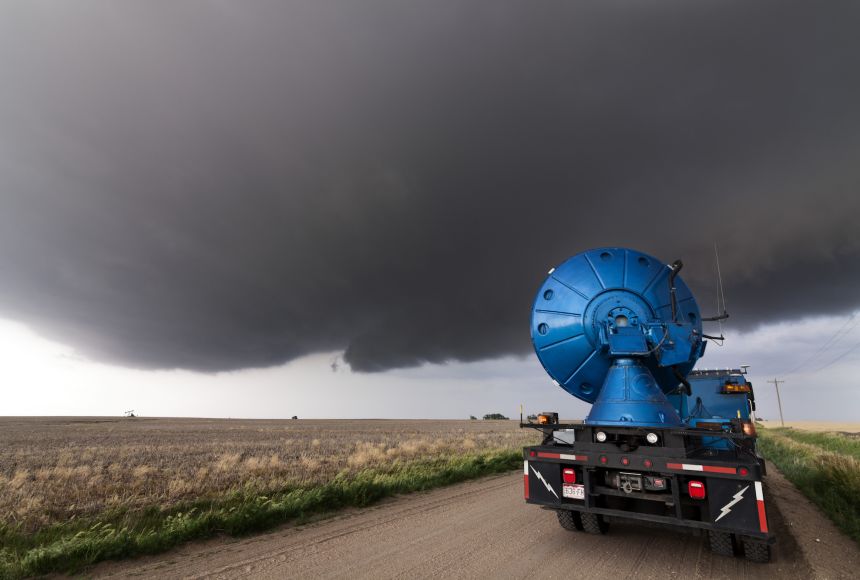ENCYCLOPEDIC ENTRY
ENCYCLOPEDIC ENTRY
Meteorology
Meteorology
Meteorology is the science dealing with the atmosphere and its phenomena, including both weather and climate.
Grades
5 - 8
Subjects
Earth Science, Climatology, Meteorology
Image
Weather Radar Truck
Weather scientists travel around the world all year trying to learn more about storms and how to keep people safe. Radar trucks like these are used to better understand the severity of storms and tornados.
Photograph by Ryan McGinnis

Media Credits
The audio, illustrations, photos, and videos are credited beneath the media asset, except for promotional images, which generally link to another page that contains the media credit. The Rights Holder for media is the person or group credited.
Director
Author
Production Manager
Program Specialists
Specialist, Content Production
Producer
other
Last Updated
October 19, 2023
For information on user permissions, please read our Terms of Service. If you have questions about how to cite anything on our website in your project or classroom presentation, please contact your teacher. They will best know the preferred format. When you reach out to them, you will need the page title, URL, and the date you accessed the resource.
Media
If a media asset is downloadable, a download button appears in the corner of the media viewer. If no button appears, you cannot download or save the media.
Text
Text on this page is printable and can be used according to our Terms of Service.
Interactives
Any interactives on this page can only be played while you are visiting our website. You cannot download interactives.